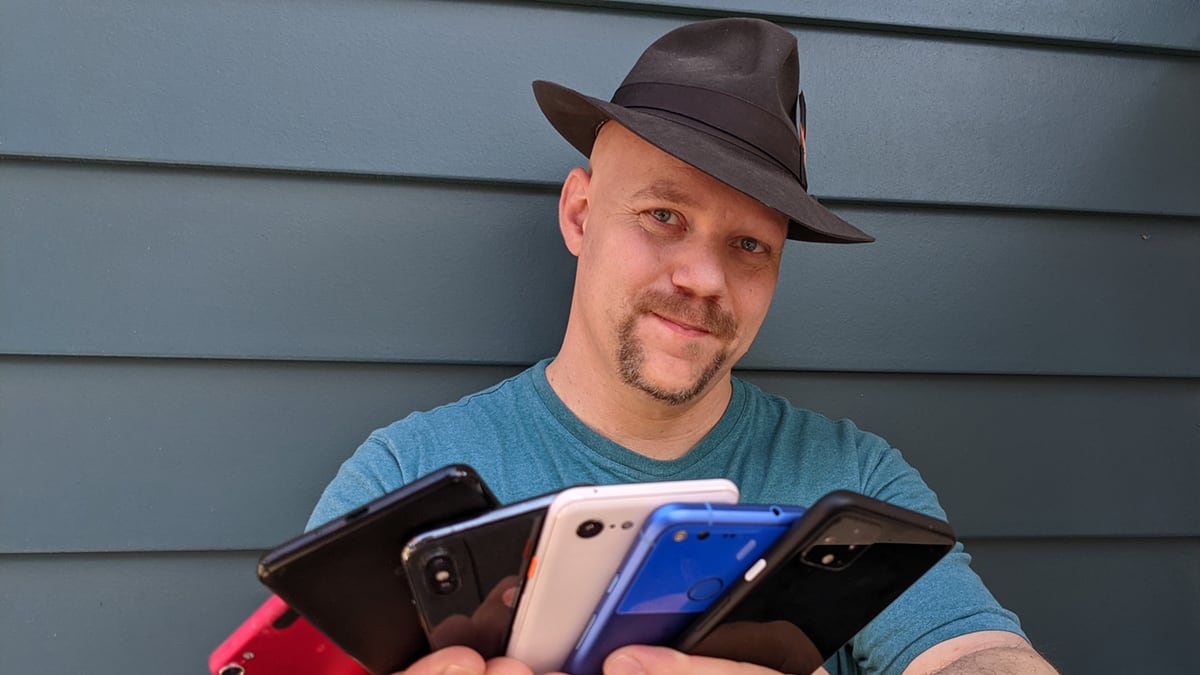Even after landing a coveted spot on the April 9 episode of Penn & Teller: Fool Us, "Magic" Seth Raphael is in no hurry to quit his day job. The global TED Fellow with a master's degree from the Massachusetts Institute of Technology Media Lab—his thesis was titled "The Wonder of Magic: Eliciting Wonder and Analyzing its Expression"—currently works in product design for Google's augmented reality department.
"The goal's the same," he chuckles, "use the tools available to help achieve things you previously thought impossible."
While awaiting his broadcast television debut, Raphael talked with WW about his background in technological wizardry, crafting illusions for a socially distanced age and the lingering specter of an empty casino.
WW: How did you end up performing for two of the best-known icons in magic?
Seth Raphael: During quarantine, I found myself developing new magic at night and came up with some really fun new things I thought might play well over Zoom. I sent an audition tape and, after a couple of months, they finally wanted to talk to me about how it would translate onstage. I reworked everything, went through rehearsals a couple times over Zoom with the producers, and ended up going down to Las Vegas.
What was that like?
Penn and Teller have their own theater, but the entire casino was on lockdown for COVID, so the only people there were involved with the production. You see empty dealer tables and all of those little flashing lights from slot machines that weren't designed to be turned off. This space that was meant to feel grand and full was just barren.
How does each episode work?
Every show has four contestants. You're playing for a trophy and the opportunity to open for their Vegas show when things reopen. You have to tell the producers how the effect works. Even though you're there to fool Penn and Teller, the goal is really just to celebrate magic. It felt wonderful.
You probably can't explain what you did, can you?
It's an old trick that magicians have been doing for a very long time. I came up with a spin unlike anything anybody has seen before, and I expect other magicians are going to be flabbergasted.
All of my magic takes the tricks that the magician uses to do impossible things and applies them to technology just to shift how you think about what's possible. You've heard the Arthur C. Clarke quote? My motto, for a while, has been the converse: "Any sufficiently advanced magic is indistinguishable from technology."
When did you start doing magic?
My grandfather was a magician, and I inherited his books and tricks that he created. Somewhere along the line, I got introduced to computers and, from a very early age, started combining technology and magic.
So, you've been trying virtual tricks well before COVID?
Yep, I've been waiting. My undergraduate thesis was called "The Fourth Venue," an allusion to the three venues at which magicians typically perform: close up, stage and parlor. I saw the internet as the fourth venue.
Were you the first?
This was back in 2004, and there were maybe three or four of us with very different takes. Some people were producing CD-ROMs and doing tech performances. Some had flash apps that the magician could control.
Whereas you?
Let's say we were hanging out one night, and you're talking about how a plastic elephant would be the perfect piece of décor. A few minutes later, my phone rings, and I play the call: "Hey, Visa users, time to get your plastic elephant!" That piece is called Strange-Flavored Spam. It's not magic per se, but it plays with our communal experience, pushing our concept of what's real and what's not.
Do you miss the stage?
With my [five] kids, I'd love the opportunity to continue performing without having to travel, and I do a different kind of magic that lends itself to digital. If we can create a connection between three participants over Zoom—one thinks of a city, one thinks of a food, and another picks the phone number—then, all of a sudden, we have three people connecting even though they're not together, which is different than just making a coin disappear, right?
Magicians have historically jumped on cutting-edge technology, and I think that some of them were very excited about diving into Zoom magic. When people are starved for connection and entertainment, there will be huge audiences. Some people make a lot more than they were before. Certainly not everyone has a great show yet, but some of them are spectacular.
Any blowback from your competitors about the virtual tricks?
Oh, yes. I'm not on Facebook because I find life's better that way, but I hear of discussions where people deride my technology as, you know, cheating. That's fine with me. What is magic if not cheating?
SEE IT: Seth Raphael's "Magic R App" episode of Penn & Teller: Fool Us airs at 9 pm on Friday, April 9, on The CW. It also begins streaming on The CW app the following day.
